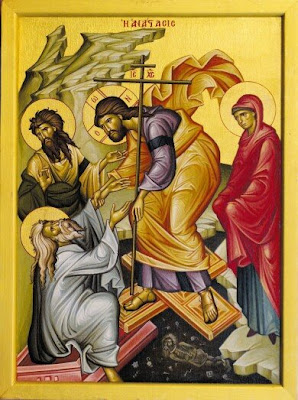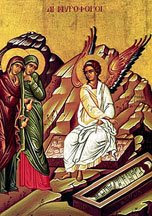Anne in her comment to the post yesterday, had a good point. If you subscribe to this porno magazine called Vanity Fair, and you get this issue, send it back unread with a note. But I know as well as you that most people wont because we just don’t care. We have our heads in the sand and we don’t care what happens. Wake up America!
Girls Gone Wild
Last week some 400 children were removed from the compound of a sect of the Church of Jesus Christ of Later day Saints in Texas due to child abuse. Perhaps the government should raid the studios of the Disney Channel! Now we find out that more than half of these children are either pregnant or have been pregnant. What are we doing to our children!
Parents need to wake up and raise their children the way they should be raised. Saturday in a town close to the Village a woman left her three children one who is 3 years old and twins that are 2 months old alone in her apartment with the stove on and started a fire! So we find out that this upstanding citizen and mother of the year has a 10 year old child living with the grandmother in Florida and she has been having a 4 year relationship with a married man. So at the court hearing her lawyer said, wait for it, she is depressed! PLEASE! Sounds like she needs another hobby.
People our society is going to HELL and we need to take it back. We seem to be more concerned about getting everything we can then raising our children the way they should be raised. This Billy Ray Clown is just another example of where we are heading. They say the photos are tasteful and artistic. It all boils down to this, she is 15 and naked that is not art that Child Pornography and they should go to jail for it!
I was going to post a link to the pictures but I do not want to be part of spreading this filth!
New Content
Date of Easter
How about a fixed date for Easter? Let’s say the first Sunday in April is now Easter or if that is too early pick another one. I don’t really think that would work and the mystery of when Easter is is great. The most asked question I get as a priest is Father, when is Easter?
From a personal stand point I think having Easter on a different day makes us Orthodox look like we cannot read the calendar. Why not have the same date at least.
Okay let the comments begin!
Greek Easter?
Someone this week asked me if I thought east and west would ever be united as we were for the first 1000 years of Christianity. I said I cannot see how that will happen as long as the east is not united with the east!
One of the happy, and sad moments for me during the Resurrection service on Saturday night was when we went outside to proclaim the Gospel and the bells from the Albanian Orthodox Church across the way were ringing. This church it literally across the street from us, there are some houses in between us so you cannot see the church, but I was thinking how sad this was that the 50 or so people at my church were separate from the 50 or so people at St. Nick’s! And there is another Orthodox Church in town as well. They by the way were celebrating Greek Easter!
Resurrection Liturgy Stream
The Paschal Homily of St. John Chrysostom
Christ is Risen Indeed He is Risen
 Albanian: Krishti Ungjall! Vertete Ungjall!
Albanian: Krishti Ungjall! Vertete Ungjall!Arabic: Al Maseeh Qam! Haqqan Qam!
Armenian: Christos harjav i merelotz! Orhniale harutjun Christosi!
Byelorussian: Khristos Uvoskros! Zaprowdu Uvoskros!
Chinese: Helisituosi fuhuole! Queshi fuhuole!
Coptic: Pikhirstof aftonf! Khen o methni aftonf!
Czech: Kristus vstal zmrtvy’ch! Skutec ne vstal!
Danish: Kristus er opstanden! Ja, sandelig opstanden!
Dutch: Christus is opgestaan! Hij is waarlijk opgestaan!
English: Christ is Risen! Indeed, He is Risen!
Estonian: Kristus on surnuist ülestõusnud! Tõesti ülestõusnud!
Finnish: Kristus nousi Kuolleista! Totisesti Nousi!
French: Christ est Ressuscité! En Vérité, Il est Ressuscité!
Gaelic: Erid Krist! G’deya! n erid she!
Irish Gaelic: Tá Críosd ar éirigh! Go deimhin, tá e ar éirigh!
Scots’ Gaelic: Tha Crìosd air èiridh! Gu dearbh, tha e air èiridh!
Georgian: Kriste aghsdga! Cheshmaritad aghsdga!
Greek: Christos Anesti! Alithos Anesti!
Hebrew: Ha Mashiyach qam! Ken hoo qam!
Hungarian: Krisztus feltámadt! Valóban feltámadt!
Italian: Cristo è risorto! È veramente risorto!
Japanese: Harisutosu Fukkatsu! Jitsu Ni Fukkatsu!
Latin: Christus resurrexit! Vere resurrexit!
Norwegian: Kristus er oppstanden! Han er sannelig opstanden!
Polish: Khristus Zmartvikstau! Zaiste Zmartvikstau!
Portugese: Christo Ressuscitou! Em Verdade Ressuscitou!
Romanian: Hristos a Inviat! Adeverat a Inviat!
Russian: Khristos voskres! Voistinu voskres!
Serbian: Hristos Vaskrese! Vaistinu Vaskrese!
Slavonic: Christos Voskrese! Voistinu Voskrese!
Slovak: Kristus vstal zmr’tvych! Skutoc ne vstal!
Spanish: Cristo ha resucitado! Verdaderamente ha resucitado!
Sweedish: Kristus är upstånden! Ja, Han är sannerligen uppstånden!
Syriac: Meshiha qam! Bashrira qam!
Ukranian: Kristos Voskres! Voistinu voskres!
Welsh: Atgyfododd Crist! Atgyfododd in wir!
Icon: www.goarch.org
Greetings: www.orthodox.net
Holy Week So Far
So this year we added three presanctified liturgies to the line up of Holy Week Liturgies. I love the presanctified liturgy. The words are wonderful and the whole atmosphere is very different from the regular run of the mill liturgy that we are used too. I will have to do a post just on the presanctified. It is weird doing an evening service in the morning and the morning service at night but such is the liturgical cycle of the church during this time.
Last night was the first long service of Holy Week. The Service of Unction. I also love this service. There are seven readings, seven prayers, and seven Gospel readings all about the healing power of the Church. The prayers are a wonderful reminder of our theology. In the liturgy book I use the prayers are printed in small print. That usually means silent prayers. I wonder how many of my fellow clergy skip these all together? I come out and stand before the table with the oil on it, that sounds funny but I am sure you know what I mean, and pray these prayers. The service was a little more and an hour and half. Then one by one the faithful come forward for the anointing. This is a part of pastoral ministry that I do not get to do very often. Then the round of confessions. Each night more and more people will come for their once a year confession. This is an extremely humbling time for me as I listen to the hurts of people. The things they are struggling with and try and find some words of encouragement. Sometimes, like the other night, they turn into long conversations about life and other such things.
Confession after Unction brings up and interesting point that needs to be flushed out about after Holy Week. The prayers of the service ask for the sins of the faithful to be forgiven. Sometimes the same words from the prayer of absolution are used. So why go to confession after if the prayers have already been said? I know that Fr. Schemann of blessed memory wrote about general confession, not to supplant individual confession, so would this be along the same lines? your comments are needed here.
Yesterday afternoon was so nice I had to get out of the office for a few hours so I went to the cottage, a trailer actually, and raked leaves and sat in the sun with the dog. It was nice and I got my first blister of the season. Today will be another glorious day.
So today we have the Vesperal Liturgy of St. Basil at 10am and the reading of the 12 Gospels at 7pm and more confessions. Between all of that I have a hospital visit to make then to the florist wholesaler to get all the flowers, no lilies this year, and some other stops for bits that I need for the rest of the week.
So the work never ends and this is the busy time of the year for a priest. Next week I can relax a little and spend sometime reading again. I have not been up to date on entries. I had planned to make some entries on the different days of Holy Week but only managed to get Monday up, yesterday. So we will see. I also planned to get a podcast in this week but not sure that will happen either.
We are going to try and stream the service tonight and if that works we will stream the rest of the services this week. If you are in the area, Orthodox or not, come on by!

